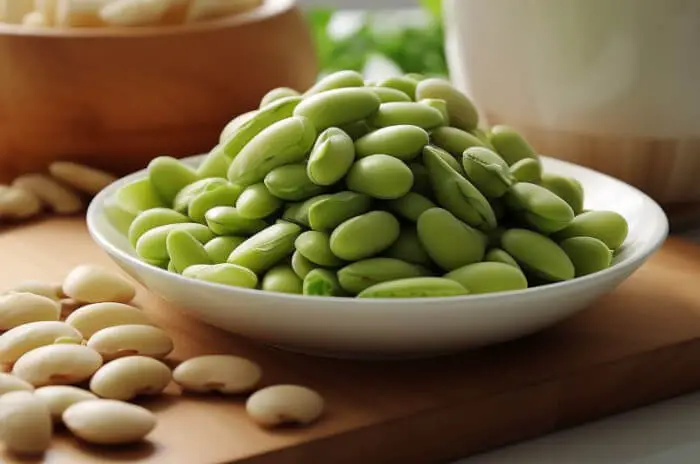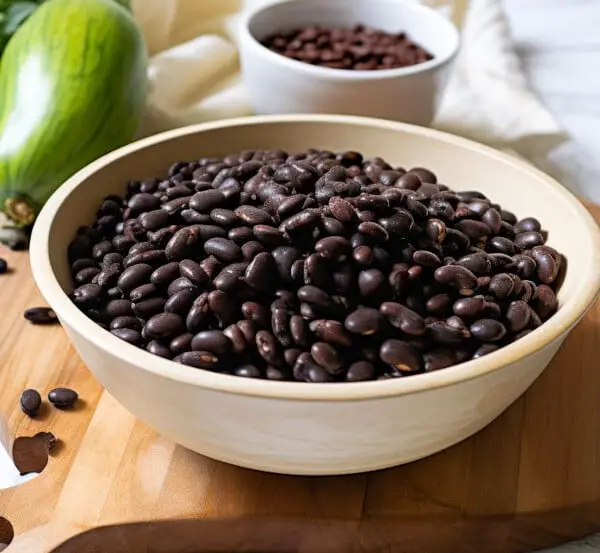In the labyrinthine world of dieting, the phrase ‘low-carb’ rings familiar to many. Popularized by regimens such as the ketogenic diet and Atkins diet, low-carb eating has become the mantra of millions striving for healthier, leaner bodies. But where do beans— a food group renowned for its carbohydrate content— fit into this picture? Let’s uncover the surprising truth about low-carb beans.

The Carb Conundrum
Most of us think of beans as off-limits in a low-carb diet due to their notable carbohydrate content. However, it’s not that simple. You see, not all carbs are created equal, and the ones in beans might just be the friendly type your body needs.
Unraveling the Bean Paradox
Beans, although high in carbs, are packed with fiber. A single cup of black beans, for instance, has an impressive 15 grams of fiber. Why does this matter? Well, the fiber in beans isn’t digested like regular carbohydrates—instead, it travels through your digestive system relatively unaltered, offering benefits without the typical carb-induced spike in blood sugar.
Nutritional Spotlight: Low-Carb Beans
Each variety of low-carb bean brings something different to the table, and understanding their nutritional profiles can help you incorporate them into your diet more effectively.
Black Soybeans: Black soybeans are not only low in carbs but are also a good source of plant-based protein and fiber. They’re packed with antioxidants, offering potential benefits for heart health.
Green Beans: High in vitamin C and vitamin A, green beans are a nutritional superstar. They provide valuable minerals like potassium and manganese, all while keeping the carb content low.
Lima Beans: Lima beans offer a healthy dose of fiber, and are also rich in vitamin B1, iron, and magnesium. While they do contain more carbs than black soybeans or green beans, portion control can keep your carb count in check.

Reaping the Benefits
By including low-carb beans in your diet, you’re tapping into a treasure trove of nutrition. Beans are a powerhouse of protein, fiber, vitamins, and minerals that support overall health and well being. Plus, the fiber in beans can help you feel fuller for longer, aiding weight loss efforts.
Crafting Low-Carb Bean Recipes
Beans can be deliciously versatile. From salads and soups to stir-fries and stews, low-carb beans can add substance, flavor, and nutrition to a variety of dishes. Consider the humble black soybean. These can be transformed into a delectable, low-carb chili, packed full of flavor without the carb guilt.
Cooking with Low-Carb Beans
Beans are incredibly versatile, and can be used in a myriad of dishes. Soups and stews, salads, or even a hearty casserole can all benefit from the addition of beans. Whether you’re in the mood for a zesty black soybean salsa or a comforting bowl of green bean soup, there’s no end to the culinary possibilities of these low-carb beans.

The Power of Beans in a Low-Carb Diet
If we really boil it down to the basics, a low-carb diet essentially emphasizes proteins and fats while minimizing carbohydrate intake. Now, beans—due to their high protein and fiber content—can work in harmony with this model. Not only do they provide an excellent source of plant-based protein, but their high fiber content can slow digestion and promote satiety, helping you adhere to your diet plan.
The Science Behind Low-Carb Diets and Beans
Scientific research supports the inclusion of beans in a low-carb diet. Despite their carbohydrate content, beans have a low glycemic index, meaning they cause a slower, steadier rise in blood sugar levels compared to high-glycemic foods. This makes beans a beneficial addition to any diet, but particularly for those focusing on low-carb intake.
Beans and Your Health
Beyond their place in a low-carb diet, beans have a significant impact on overall health. Regular consumption of beans has been linked to lower risks of several health conditions, including heart disease, certain cancers, and type 2 diabetes. They’re also beneficial for gut health, thanks to their high fiber content.

The Magic of Moderation
The golden rule when incorporating beans into a low-carb diet is moderation. Eating massive quantities of even the lowest-carb beans could potentially push you over your daily carb limit. It’s crucial to portion control and balance bean consumption with other low-carb foods. A diet with a varied nutritional profile is a successful and sustainable one.
Meal Planning with Low-Carb Beans
Once you’ve made the decision to include beans in your diet, the next step is meal planning. The beauty of beans is that they can easily be incorporated into any meal—breakfast, lunch, or dinner. Try a breakfast burrito with black soybeans, a green bean salad for lunch, or a hearty lima bean stew for dinner. Variety is key to keeping your meals enjoyable and your diet on track.
Storage and Preparation Tips
When preparing low-carb beans, remember to soak dried beans before cooking to aid digestion and shorten cooking time. Canned beans, while convenient, may contain added sodium, so be sure to rinse thoroughly before use. Additionally, storing cooked beans in the freezer can make meal prep quick and easy, helping you stick to your diet plan even on busy days.

A New Perspective on Low-Carb Beans
Beans can indeed be part of a low-carb diet. This might challenge traditional dietary perspectives, but with a deeper understanding of the nutritional makeup of beans, it’s clear they can play a beneficial role in our diets. Low in net carbs and packed with protein, fiber, and various essential nutrients, beans are a food group worthy of our attention. As we venture forward in our low-carb journeys, let’s not forget these versatile, humble legumes and the power they hold in enhancing our health and dieting efforts.
Furthering your exploration of low-carb beans, you might want to visit Fresh N Lean!
Broaden your knowledge about low-carb and practical tips on maintaining your low-carb diet while dining out.
